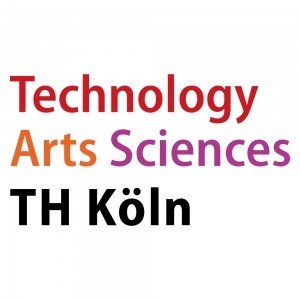Photos of university / #uni.flensburg
The course consists of the two fields of specialisation "Energy and Environmental Management in Industrialised Countries" and "Sustainable Energy Systems and Management in Developing Countries" (formerly SESAM).
The specialisation "Sustainable Energy Systems and Management in Developing Countries" (formerly SESAM) is made up of three subject areas:
The compulsory modules "Foundations of Sustainable Energy Systems" and "Environmental Economics" are offered for students of both study branches. They deliver basic knowledge and understanding of the macro-economic interrelation of environmental and energy-related problems. All other modules are tailor-made for the students of the two branches.
Basic skills in planning and overseeing of development projects are taught in two compulsory modules on "Project Management in International Development Cooperation" and "Diversity Management in International Development Cooperation". An optional module on "International Organisations and Development Strategies" allows students to specialise.
Students with a technical engineering degree have to participate in a preparatory module on Economics before they can be admitted. During the course of studies, students can choose between modules on "Shaping Sustainable Energy Systems", "Trading Energy", "External Costs of Energy" and "Energy and Environmental Policy" as electives.
In the subject area of engineering, students have to pass two compulsory modules on energy planning: "Sustainable Energy Planning in Rural Areas" and "Applied Informatics in Energy Planning".
All students have to select two further engineering modules from among the three modules "Renewable Energy I", "Renewable Energy II" and "Rational Use of Energy". These modules use problem-based learning as an educational model, which allows students to specialise according to their individual interests and the needs of their home countries.
After successful completion of all modules, students take part in an "International Class", a five-week, project-oriented field research abroad. The "International Class" allows students to work in a multidisciplinary team on a development-oriented problem of sustainable energy use. It allows students to apply their knowledge in engineering, economics and social sciences and thereby deepen their methodological skills in planning sustainable energy systems.
The "International Class" also prepares students for the challenges of their three-month, individual field research, which provides the basis for their Master's thesis.
The specialisation "Sustainable Energy Systems and Management in Developing Countries" (formerly SESAM) is made up of three subject areas:
- Business Economics and Energy Economics
- Project Management
- Renewable Energy and Energy Planning
The compulsory modules "Foundations of Sustainable Energy Systems" and "Environmental Economics" are offered for students of both study branches. They deliver basic knowledge and understanding of the macro-economic interrelation of environmental and energy-related problems. All other modules are tailor-made for the students of the two branches.
Basic skills in planning and overseeing of development projects are taught in two compulsory modules on "Project Management in International Development Cooperation" and "Diversity Management in International Development Cooperation". An optional module on "International Organisations and Development Strategies" allows students to specialise.
Students with a technical engineering degree have to participate in a preparatory module on Economics before they can be admitted. During the course of studies, students can choose between modules on "Shaping Sustainable Energy Systems", "Trading Energy", "External Costs of Energy" and "Energy and Environmental Policy" as electives.
In the subject area of engineering, students have to pass two compulsory modules on energy planning: "Sustainable Energy Planning in Rural Areas" and "Applied Informatics in Energy Planning".
All students have to select two further engineering modules from among the three modules "Renewable Energy I", "Renewable Energy II" and "Rational Use of Energy". These modules use problem-based learning as an educational model, which allows students to specialise according to their individual interests and the needs of their home countries.
After successful completion of all modules, students take part in an "International Class", a five-week, project-oriented field research abroad. The "International Class" allows students to work in a multidisciplinary team on a development-oriented problem of sustainable energy use. It allows students to apply their knowledge in engineering, economics and social sciences and thereby deepen their methodological skills in planning sustainable energy systems.
The "International Class" also prepares students for the challenges of their three-month, individual field research, which provides the basis for their Master's thesis.
Educational organisation
The course consists of the two fields of specialisation "Energy and Environmental Management in Industrialised Countries" and "Sustainable Energy Systems and Management in Developing Countries" (formerly SESAM).Organisation of the specialisation "Sustainable Energy Systems and Management in Developing Countries":
First semester (summer)
Sustainable Energy Planning in Rural Areas (Compulsory, 5 CP)
Engineering Module I (Core elective, 5 CP), one module to be selected from:
- Renewable Energy I
- Renewable Energy II
- Rational Use of Energy and Energy Auditing
Sustainable Energy Systems Foundations (Compulsory, 5 CP)
Environmental Economics (Compulsory, 5 CP)
Project Management I (Compulsory, 5 CP)
Second semester (winter)
Project Management II (Compulsory, 5 CP)
Sustainable Energy Innovation-Implementation in Developing Countries (Compulsory, 5 CP)
Core Elective Economy/Management Modules, one module to be selected from:
- International Organisations and Development Strategies
- External Costs of Energy
- Trading Energy
- Shaping Sustainable Energy Systems
- Energy and Environmental Policy
- Quality Management in Projects
Engineering Module II (Core elective, 5 CP), one module to be selected from
- Renewable Energy I
- Renewable Energy II
- Rational Use of Energy and Energy Auditing
International Class (Compulsory, 5 CP)
Third semester (summer)
Field research, Master's thesis and defence
Organisation of the study branch "Energy and Environmental Management in Industrialised Countries"
First semester (summer)
Energy Management (Compulsory, 5 CP)
Green Engineering II (Compulsory, 5 CP)
Applied Informatics (Core elective, 5 CP), one module to be selected from:
- Automation in the Energy Sector (taught in German)
- Object-Oriented Modelling (taught in German)
- Dynamic Building Simulation (taught in German)
Environmental Economics (Compulsory, 5 CP)
Environmental Management (Compulsory, 5 CP)
Second semester (winter)
Core Elective Engineering Modules (Core elective, 5 CP), three to be selected from:
- Materials Science I (taught in German)
- Materials Science II (taught in German)
- Development and Assessment of Energy Systems (taught in German)
- Advanced Power Plant Technology (taught in German)
- Advanced Topics in Renewable Energy Technologies
- External Costs of Energy
- Trading Energy
- Strategic Innovation Management
- Bringing Technologies to Market
- Project Management
- Energy and Environmental Policy
- International Economics
- Public Finance and Environmental Policy
- Shaping Sustainable Energy Systems
- Energy and Environmental Law (taught in German)
- International Management Methods (taught in German)
- Financial Risk Management
- International Organisations (taught in German)
- Multinational Business Finance
- Analysis and Shaping of Work Systems (taught in German)
- Cooperation in Enterprises (taught in German)
- Social Framework Conditions of Work (taught in German)
- Theory of Organisation and Organising (taught in German)
Third semester (summer)
Master's thesis and defence
Study abroad unit(s)
Students in the specialisation "Sustainable Energy Systems and Management in Developing Countries" participate in an "International Class", a five-week, project-oriented field research abroad, presently conducted in Scotland. They also have to carry out three months of field research in a developing country in preparation for their Master's theses.Students of the branch "Energy and Environmental Management in Industrialised Countries" have to prove that they spent one semester abroad during their undergraduate studies.
Forms of assessment
Students have to achieve 90 ECTS credit points in three semesters. 60 credit points are awarded after successful participation in the modules of the first and second semesters. A further 30 credit points are awarded for the Master's thesis in the third semester.Credit points are awarded after completion of a module and successful participation in a module assessment. The form of assessment depends on the topic of the module. Typical forms of assessment are presentations, papers, reports and written exams.
Course objectives
The objective of the course is to qualify students for employment as professionals in the energy sector. More specifically, the course qualifies students:- to recognise and analyse energy and environmental problems
- to facilitate and to contribute to the process of sustainable problem-solving
Apart from subject-oriented skills, the course focuses on key qualifications such as:
- the ability to recognise problems and solutions in their entirety
- problem-solving ability
- creativity and openness to innovation
- the ability to think and communicate in interdisciplinary and intercultural ways
- the ability to work in teams, to lead and to motivate teams
Language requirements
All students must provide proof of proficiency in the English language (TOEFL IBT score 80, IELTS Band 6 or equivalent).Students of the specialisation "Energy and Environmental Management in Industrialised Countries" also have to provide proof of proficiency in the German language (e.g. DSH, TestDaF 3).
Academic requirements
- An above-average Bachelor's or equivalent university degree in Industrial or Business Engineering after a minimum of four years of studies
- An above-average Bachelor's or equivalent university degree in Engineering after a minimum of four years of studies and proof of successful completion of the preparatory course in Economics
- Successful completion of an admission interview (can be conducted as a telephone interview in the case of international students)
- Professional experience of at least two years in a field related to the course focus
Enrolment fees
92.50 EUR per semesterThe fee includes a semester ticket covering public transport within the city of Flensburg for the duration of one semester.
Costs of living
The cost of living is generally slightly lower than in major German cities. We recommend that students budget for a minimum of between 650-700 EUR per month, including rent.The cost of excursions and the International Classroom is approx. 1,800 EUR.
Arrival support
We employ student mentors who support international students during their stay in Flensburg. Rooms in the student halls of residence are booked for international students in advance, if available. The student mentors pick up new international students at the train station and help with the necessary formalities.Services and support for international students
Student mentors are available throughout the international students' stay in Flensburg to provide assistance in dealing with administration, health services, etc. They organise social events, excursions and sightseeing and support students in organising their own social activities. Most international students require the assistance of the student mentors only occasionally: as we are a small university, it is very easy to make friends who will help their international classmates. The university supports this with a "Mentor Family Programme": families from Flensburg offer to take on the mentorship of an international student in order to introduce him/her to German culture and to social life in Flensburg (http://cross-culture-flensburg.de).Accommodation
The "Studentenwerk Schleswig-Holstein" offers accommodation in three halls of residence in Flensburg. The rent for a furnished single room in a student residence is in the range of 170-230 EUR per month. All halls of residence offer self-catering accommodation with shared kitchen and cooking facilities. Two of the student halls of residence provide free internet access via WiFi.Apart from the student halls of residence, private landlords offer rooms and flats in town at moderate rates.








